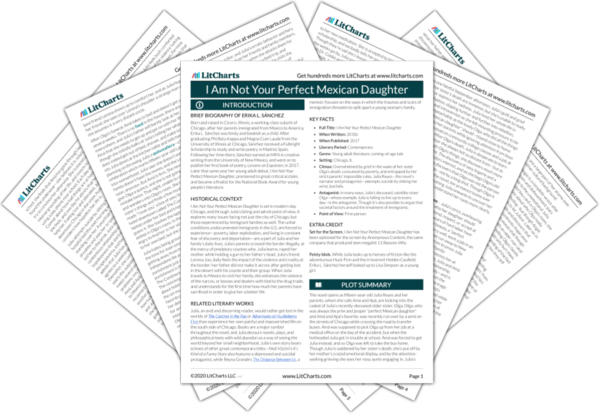Lorena is skeptical of Connor from the get-go. She’s protective of Julia, just as Amá is—she doesn’t want her to get hurt or to operate under false hopes. To Lorena, it’s possible that Julia’s relationship with Connor represents Julia’s desire to escape the neighborhood and socioeconomic class she and Lorena share—a slight to Lorena for sure, and an ambition she wants to tell Julia might be too lofty. More broadly, though, Lorena is skeptical of the possibility of any cross-cultural, cross-socioeconomic relationships. She can’t believe that anyone of Connor’s class can fully avoid looking down on those of a “lower” class. It’s interesting that the book never rejects Lorena’s argument. Rather it simply lets it stand, as another complication in a complicated word.
